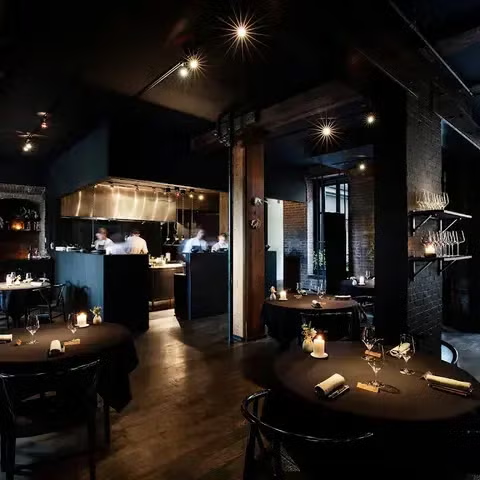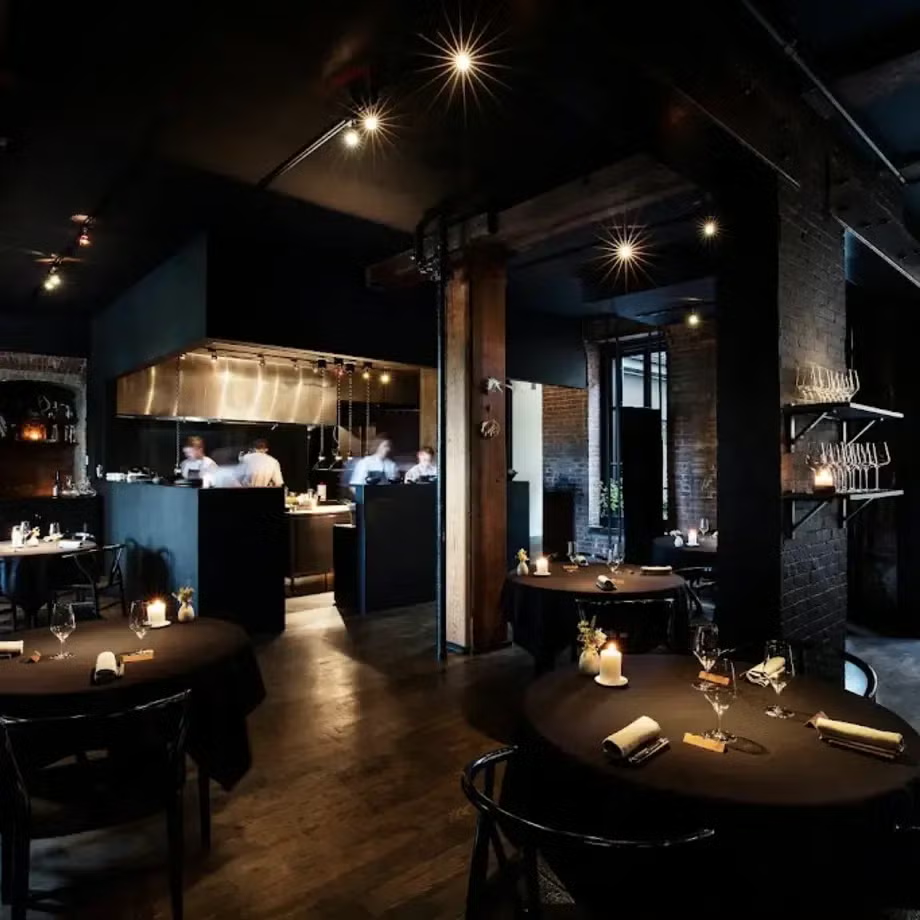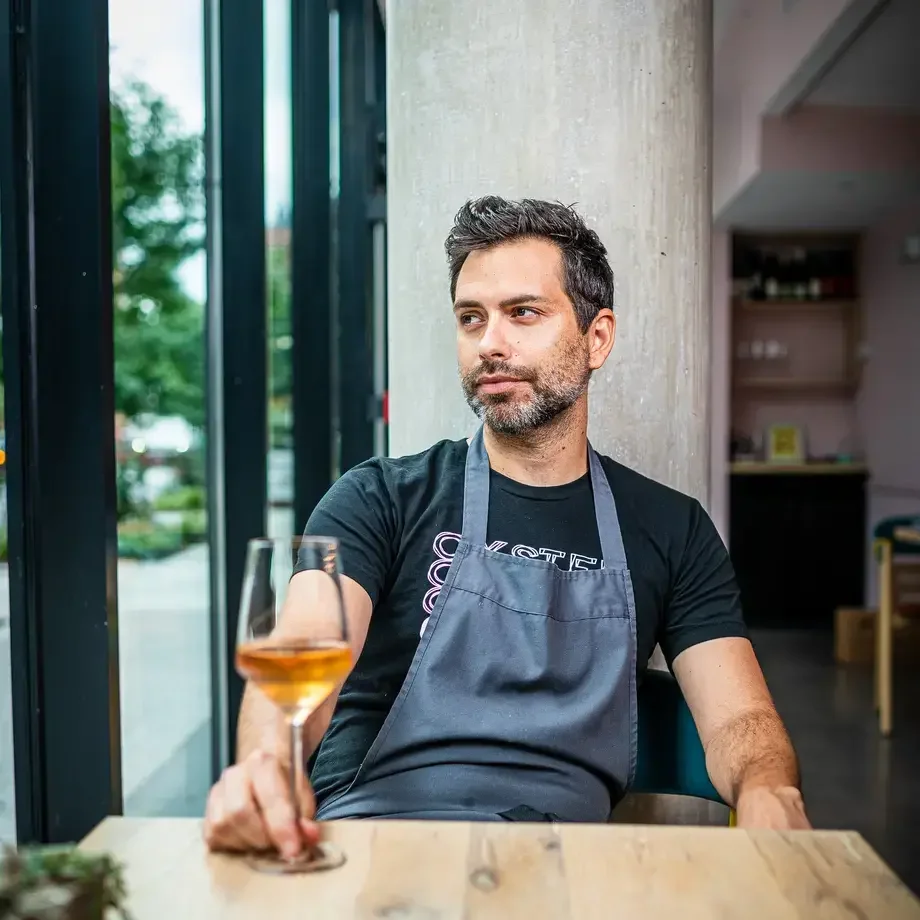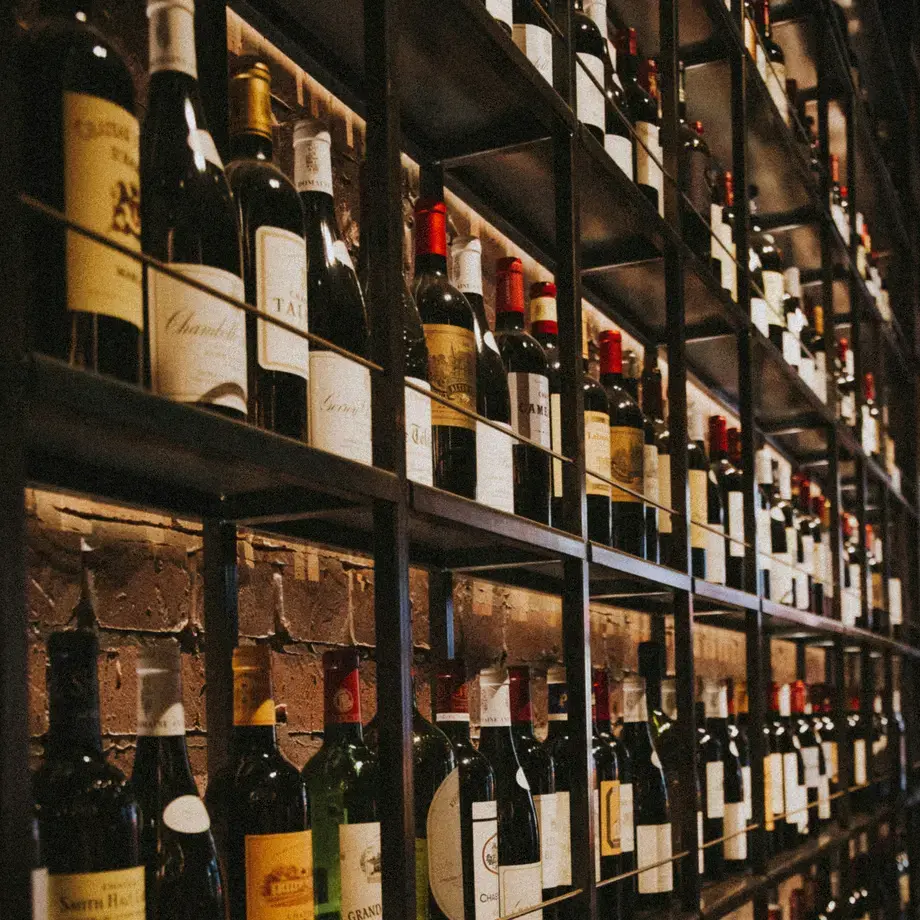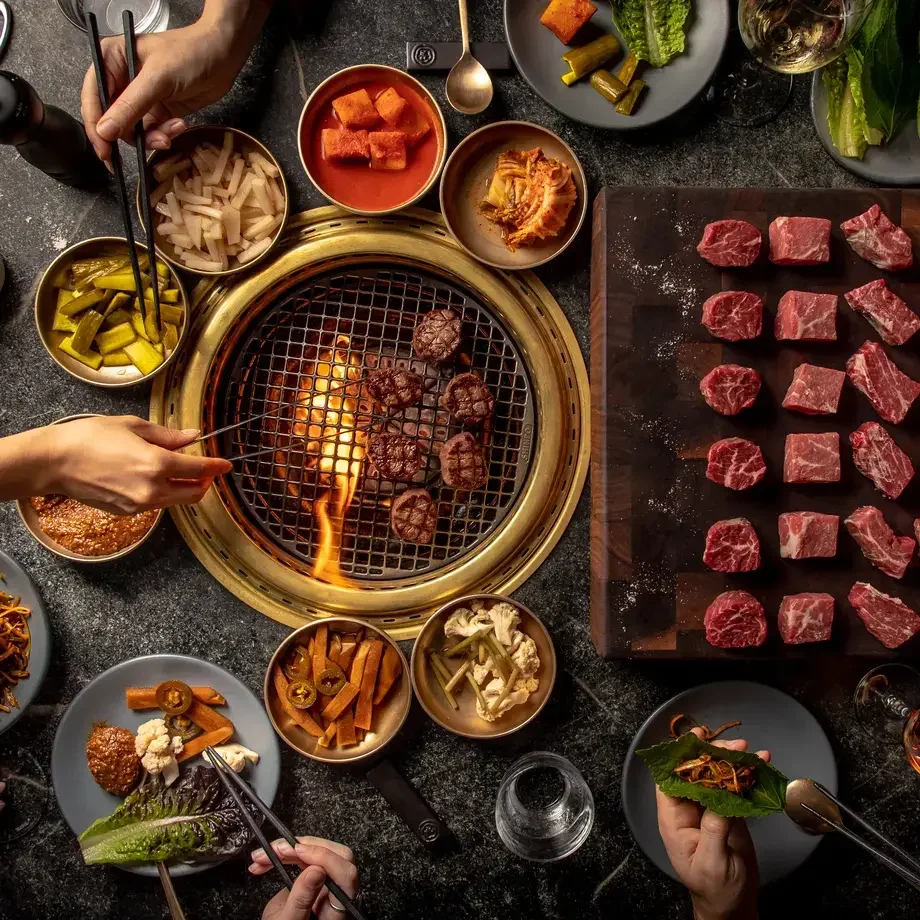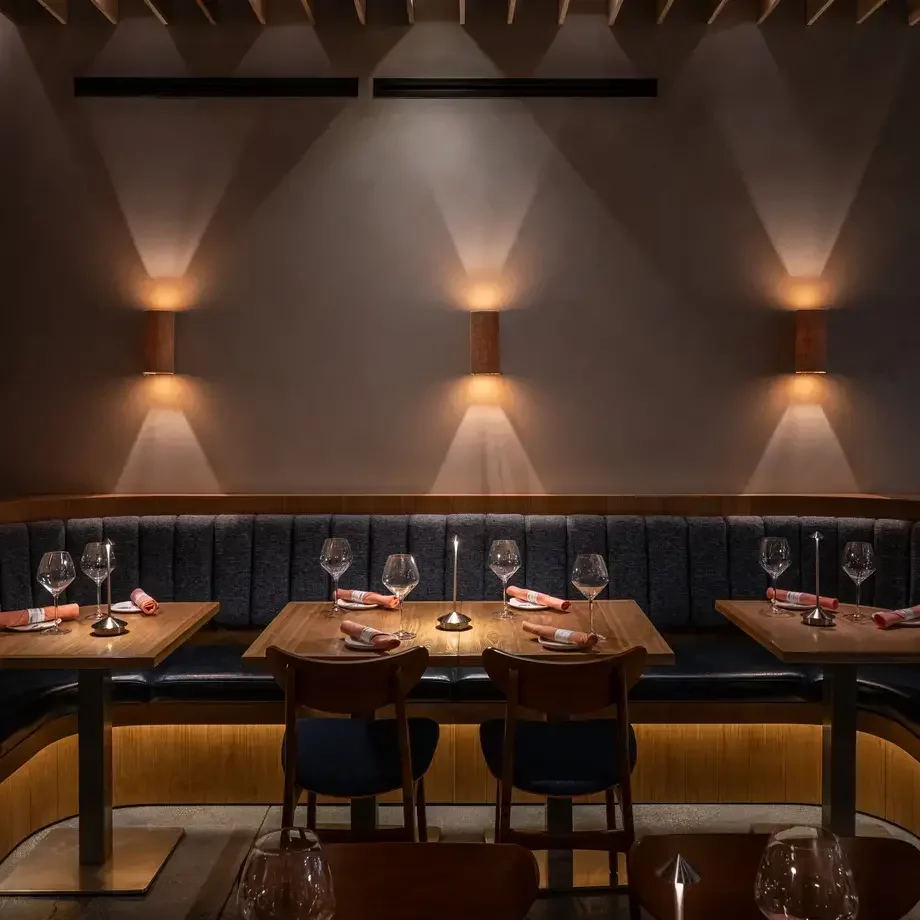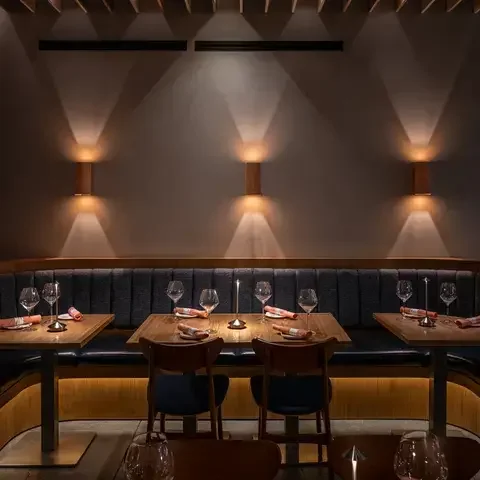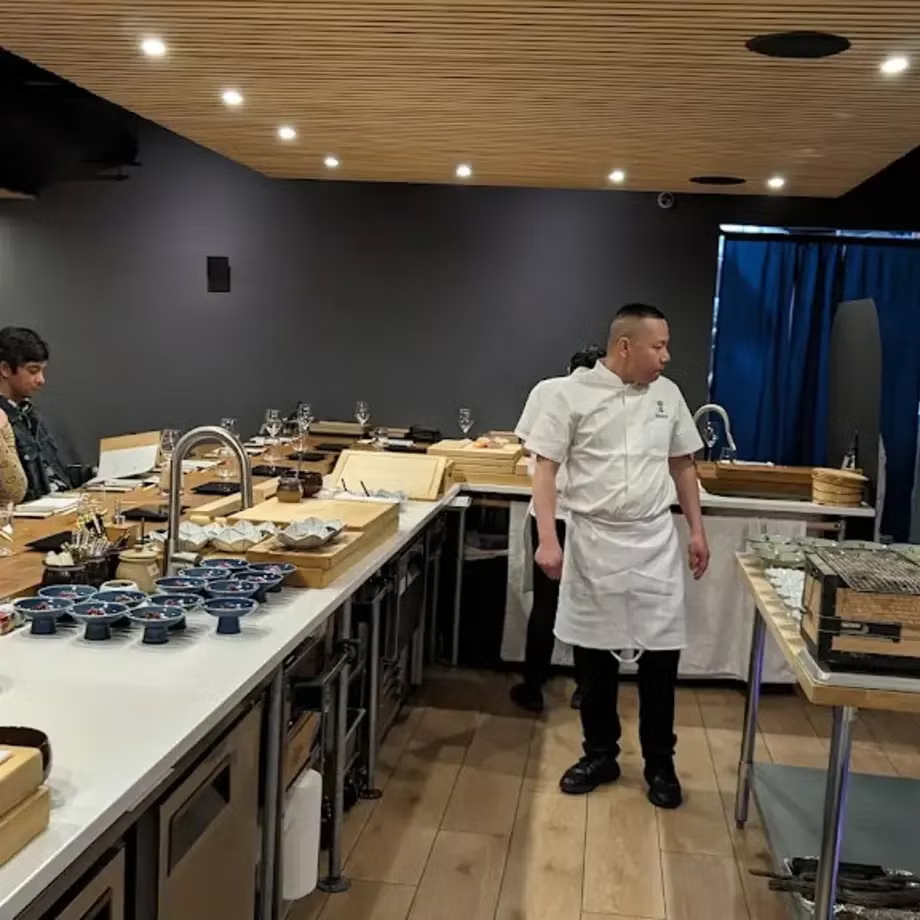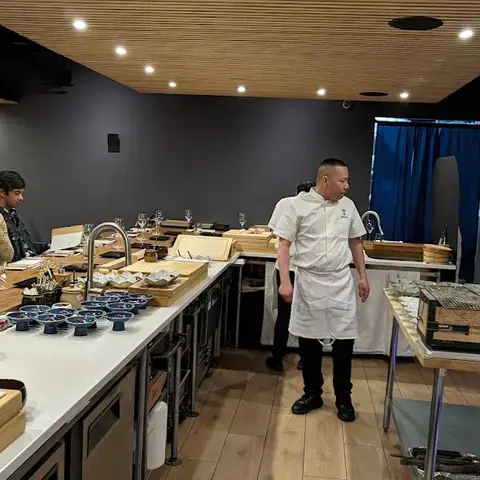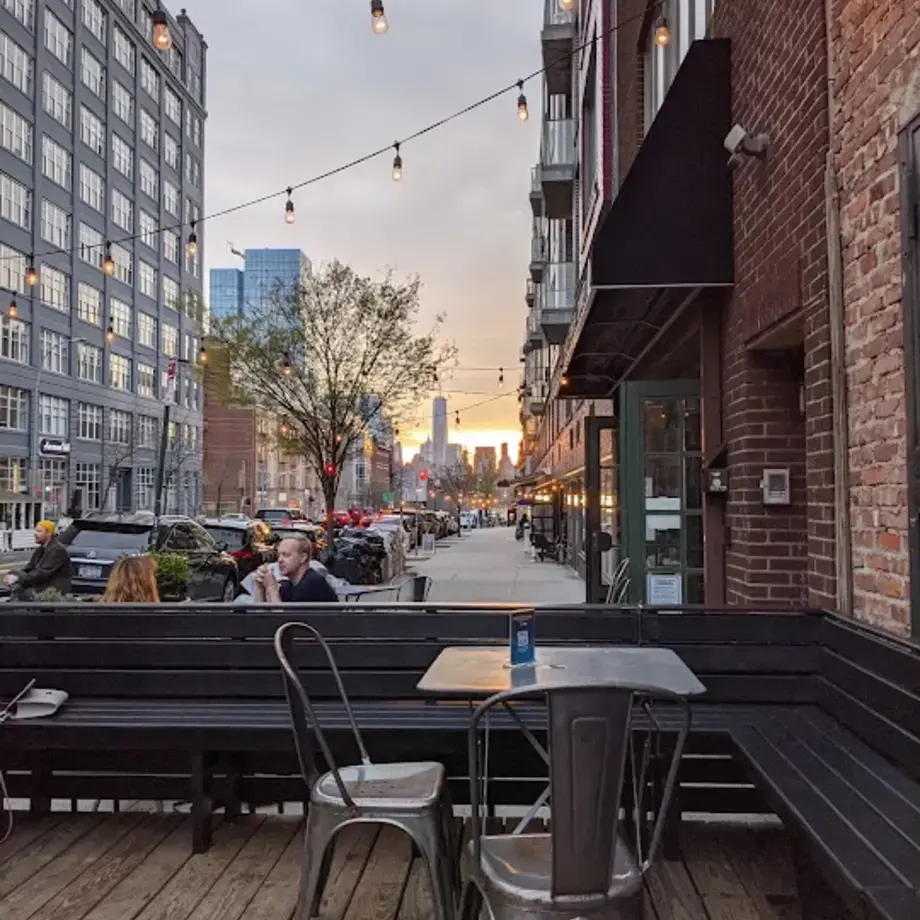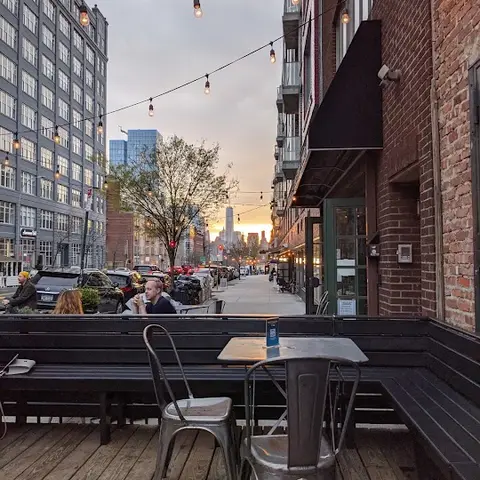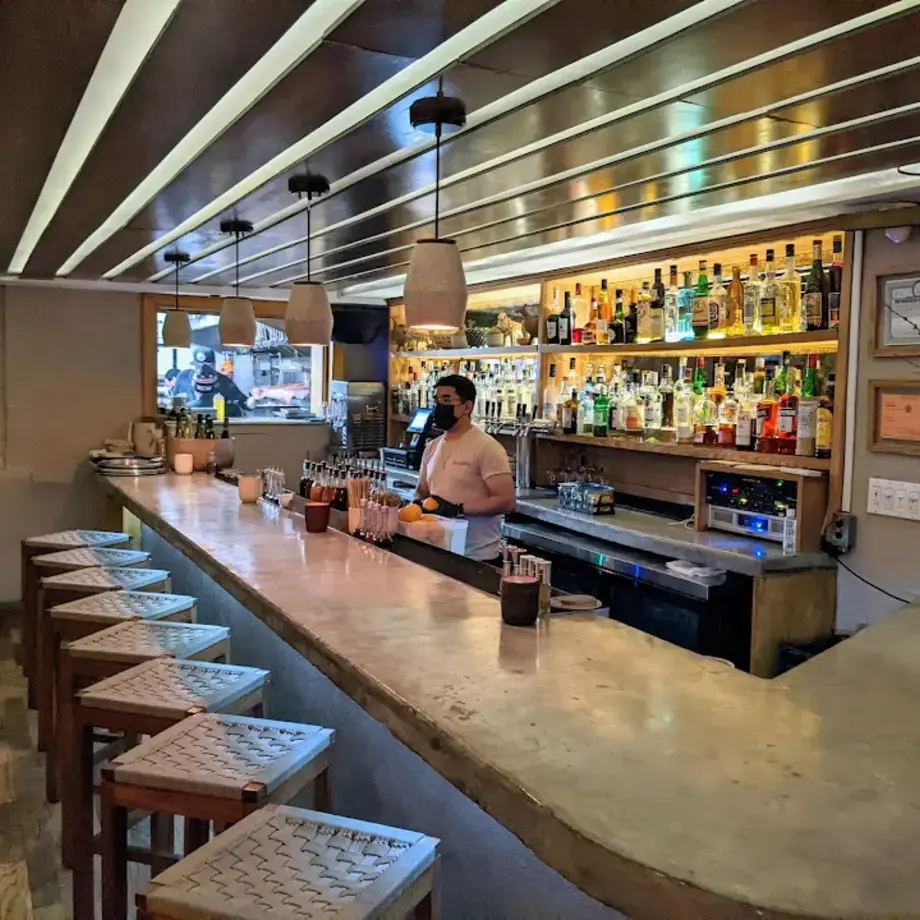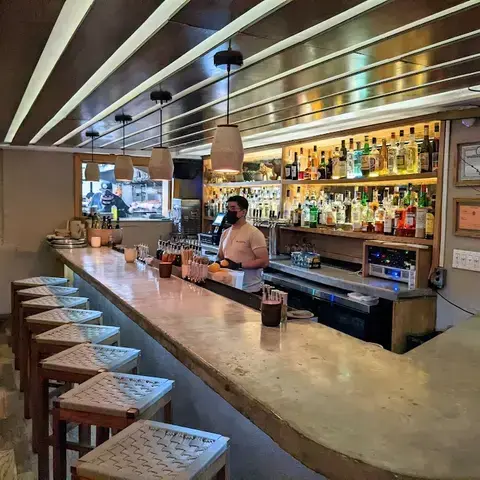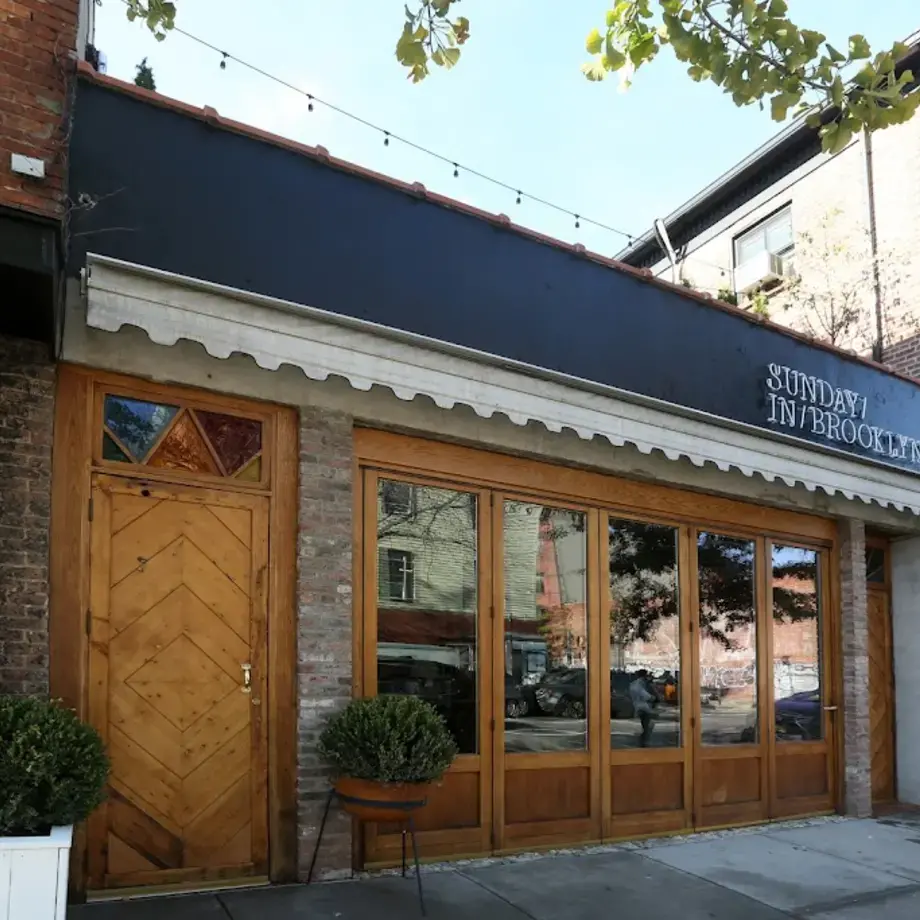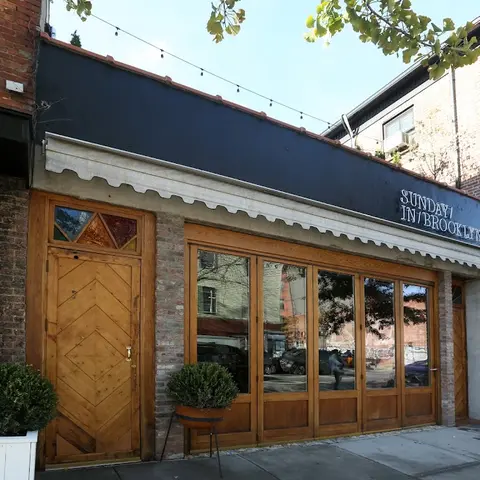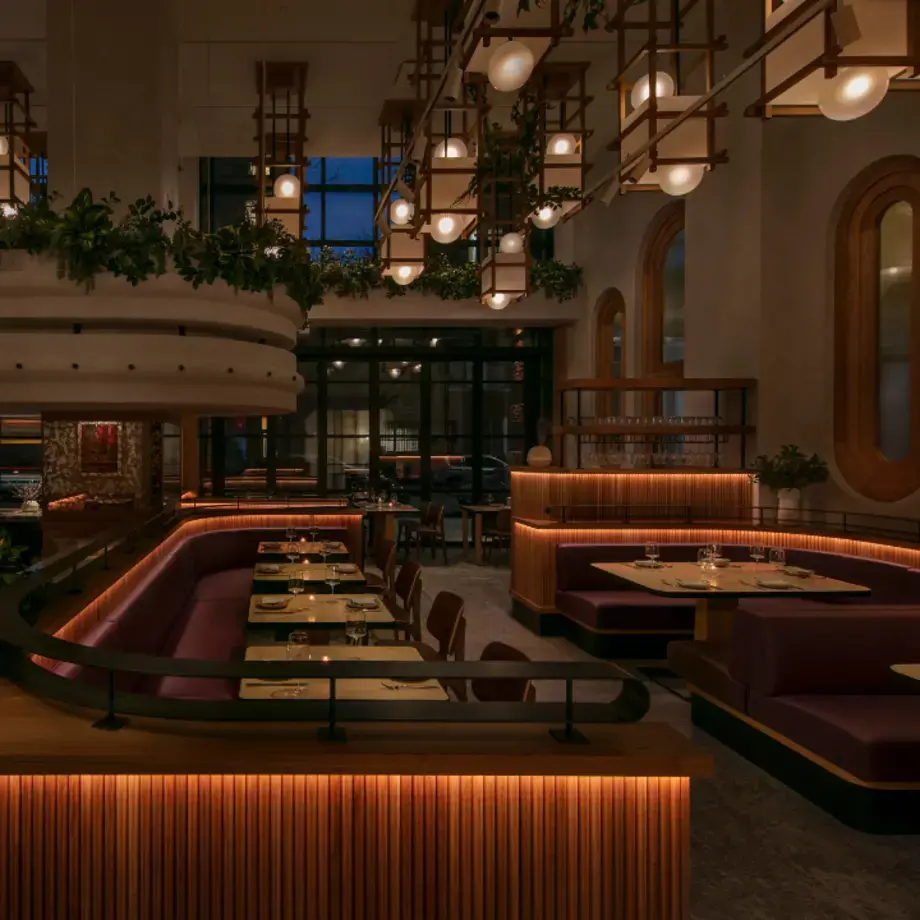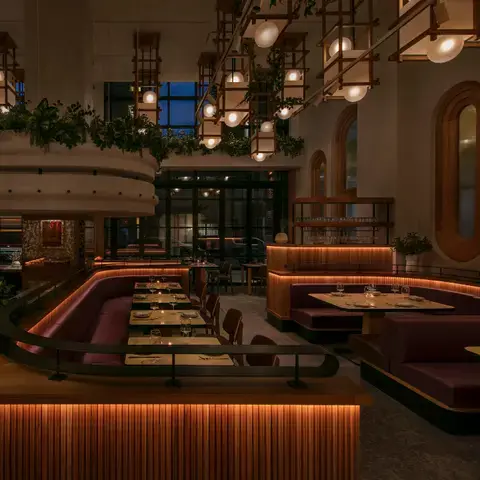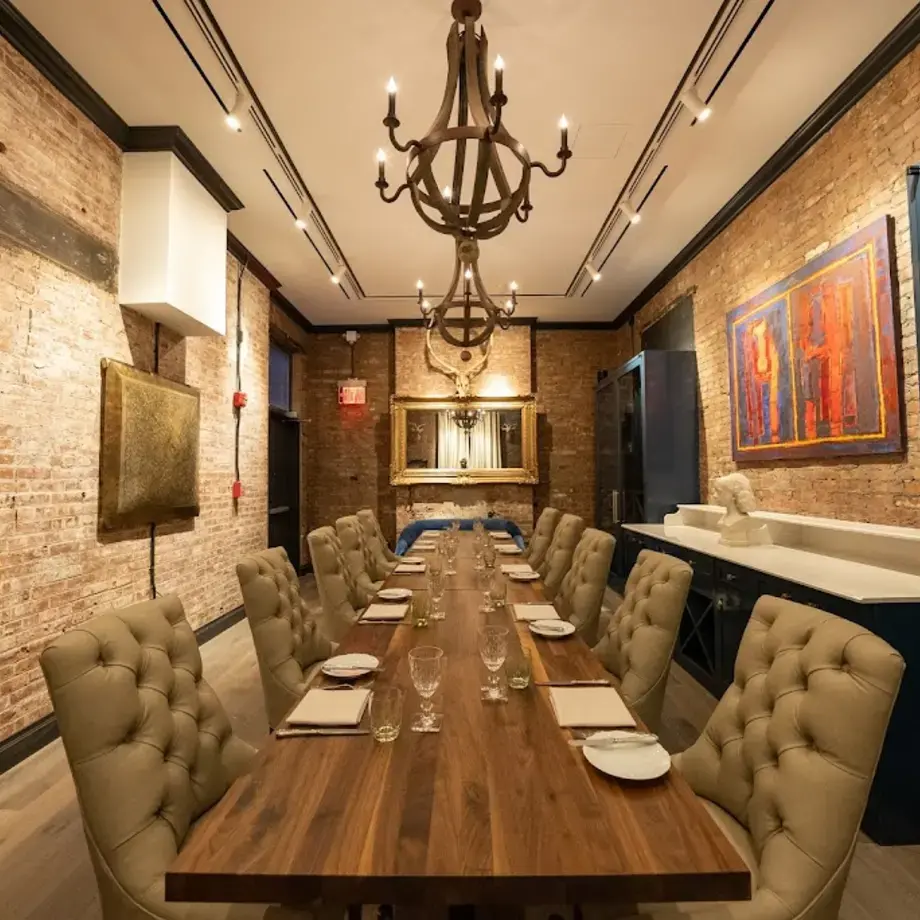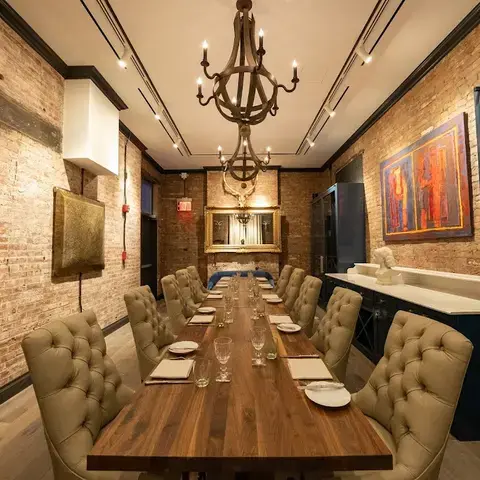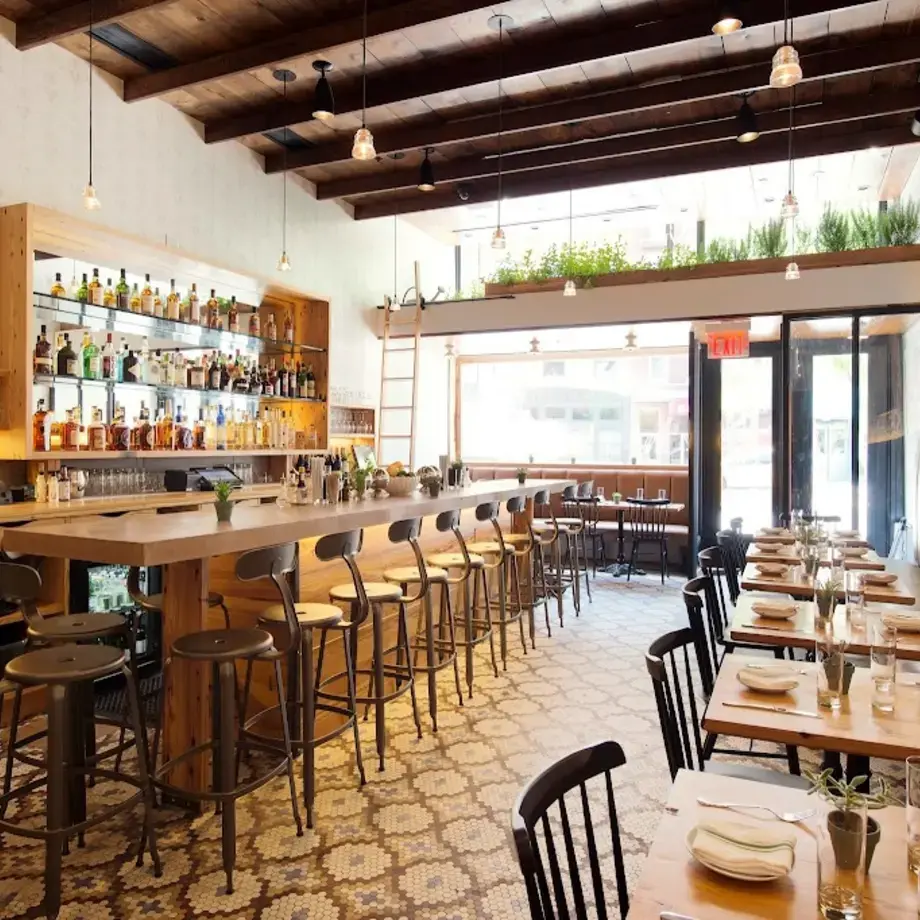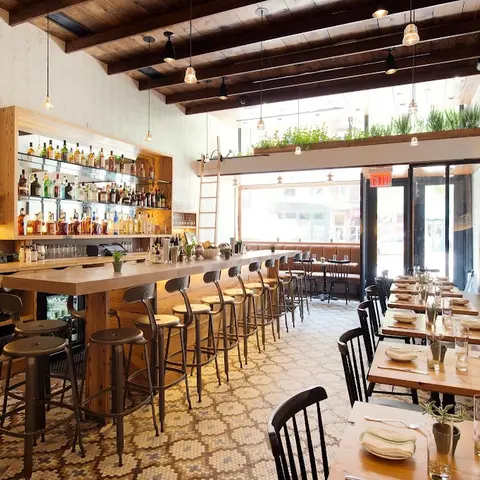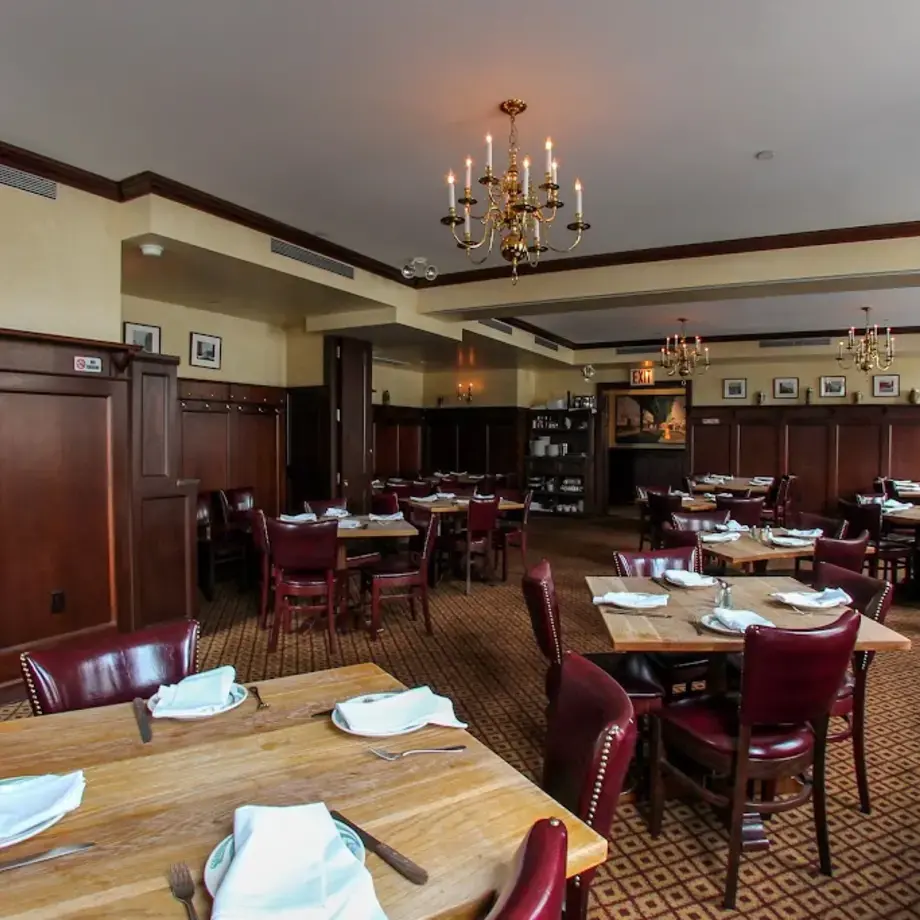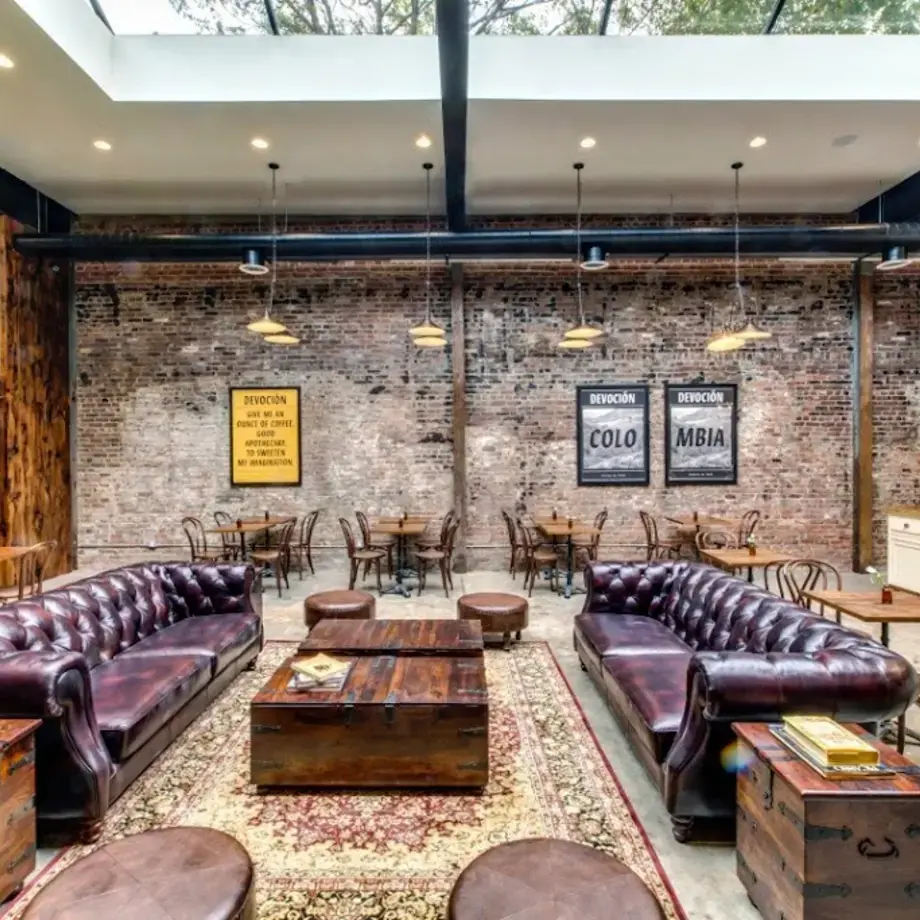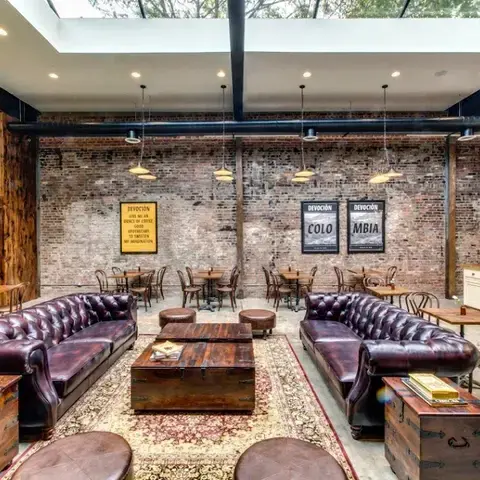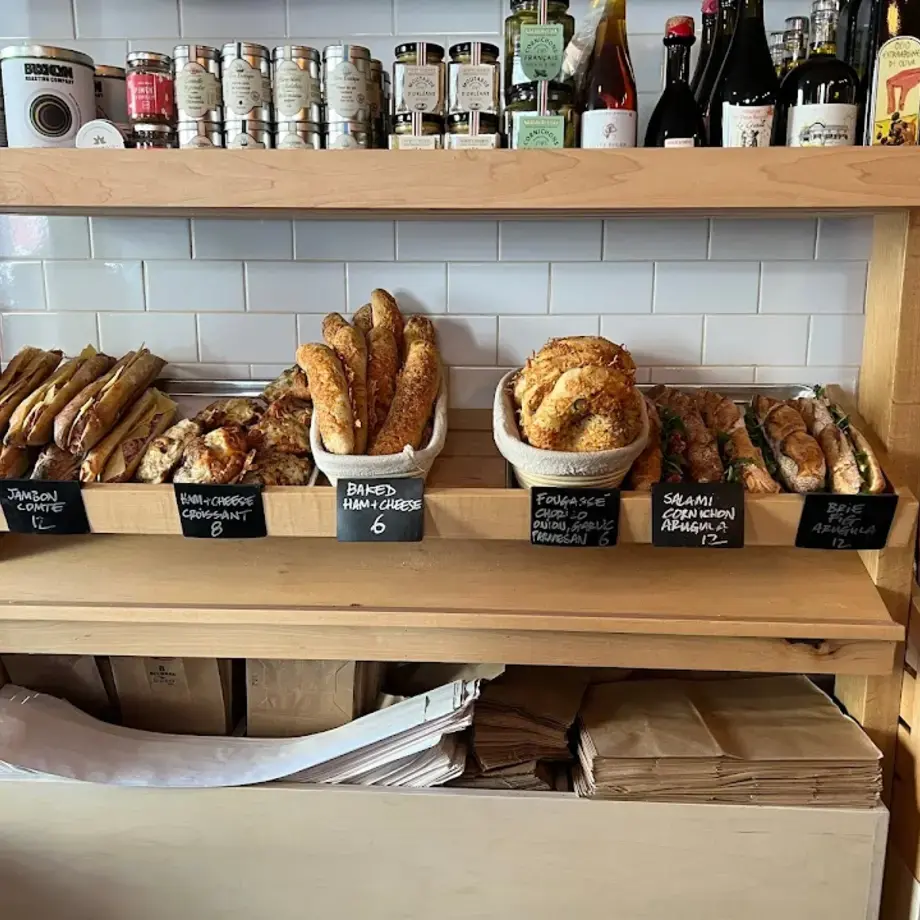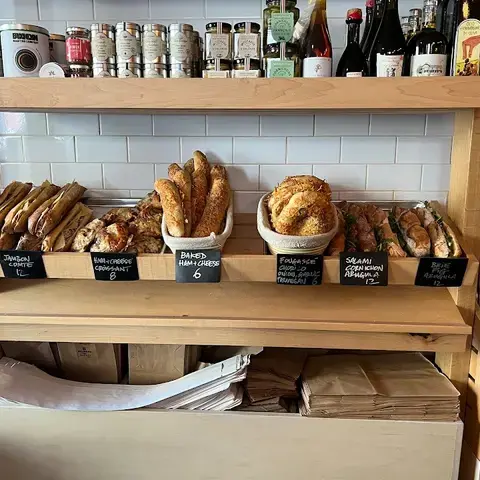As a chef, he combines his love of nature and the food he enjoyed growing up in Sweden with a New York culinary mindset and ingredients he sources from carefully selected producers in the American northeast and his vegetable garden.
Aska occupies a restored 1860s warehouse building close to the Williamsburg Bridge. The space is split across two levels, with a cellar lounge and garden.
Perhaps appropriate for a restaurant whose name means ‘ashes’ in the chef's native tongue and where cooking is taken with deadly seriousness, Aska's exterior is painted black. A similarly somber aesthetic characterizes the interior, with its minimalist design and polished dark wood. In contrast to the look, however, the feel inside is happy and buzzy, thanks to the surprise and delight provoked by each exquisite dish the chefs deliver personally to diners.
For those unable to dine at Aska but eager to know more, Berselius has shared 85 of his recipes, along with personal reflections on cooking and recollections of his Swedish upbringing, in a book that takes its name from the restaurant, published by Phaidon in 2018.
Despite his prodigious success, Berselius might never have become a chef. Growing up in Stockholm, he dreamed only of being a professional snowboarder. But while visiting his sister while she studied hospitality in London, he was introduced to the world of fine dining and a seed was planted. He worked in various restaurants in London in the early 2000s before moving to New York, where his culinary education began in earnest. After studying nutrition at the Natural Gourmet Institute, he gained experience in kitchens including Per Se.
In 2012, Berselius opened Frej, a pop-up serving affordable Scandinavian cuisine. Later that year, he used the same location in Williamsburg to open the original Aska. By 2014 the restaurant had outgrown this space, so Berselius took the decision to close and find somewhere larger, reopening Aska in its current location in 2016.
When he's not meticulously preparing his exquisite tasting menus or concocting imaginative new dishes, he can be found out and about in nature, running marathons or cycling in the Catskills, where he also likes to keep an eye open for new ingredients.
Aska earned its first Michelin star within a year of opening in its original location in 2012, receiving the second shortly after the reopening in 2016. It also boasts a coveted three-star review in The New York Times and a place in Bon Appetit magazine’s 10 Best New Restaurants in America.
